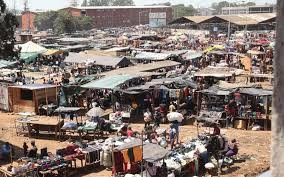IN the vibrant streets of Harare, Bulawayo and Mutare the hustle and bustle of vendors paints a vivid picture of resilience against the backdrop of economic adversity. For many Zimbabweans, vendors are not just traders; they embody the spirit of survival, creating livelihoods in a challenging environment. As the proposed nationwide ban on street and night-vending looms, the very existence of vending hangs in the balance, sparking fierce debate about the future of informal trade in the country. On a typical morning, as the sun rises over Harare, vendors like Tendai, a 32-year-old mother of two, set up their stalls filled with fresh produce and a few metres away, another sets up a stall for second-hand clothes. “This is how I feed my children,” she says, her hands skilfully arranging vegetables.
“If they take this away, I don’t know what will happen to us. ” Tendai’s plight is shared by countless others who have turned to vending as a lifeline in a nation grappling with skyrocketing unemployment and economic instability. In a recent proclamation, Local Government minister Daniel Garwe announced plans to ban street and night-time vending, citing the need for urban order and aesthetics. However, voices from the community and streets have risen in defiance, arguing that the ban will exacerbate the struggles of those who rely on the informal jobs for survival. “Our cities must be clean and organised,” Garwe stated.
But this perspective overlooks the harsh realities faced by vendors who have long struggled for recognition and space in the formal economy. Social analyst Nyasha Chikwenje warns that banning vending will only push these activities underground. “Many vendors lack access to formal employment due to systemic policy barriers,” she explained during an interview, adding that for many families, vending was often the only viable option. Her sentiments resonate with vendors who express their desperation and determination to continue working despite the looming threat. In Bulawayo, a vendor named Mercy shares her experience: “I have been selling clothes for over five years.
This is my only source of income. Without it, we will starve. ” Mercy’s story reflects a broader narrative of struggle and resilience that characterises the informal economy across Zimbabwe. Legal experts echo these concerns, emphasising the potential infringement on the rights of individuals to earn a livelihood. Advocate Tinashe Moyo states: “The government must consider the legal ramifications of displacing vendors who have nowhere else to go.
” He argues that a ban without a valid legal framework is not only unjust but also ineffective. Health experts also weighed in on the potential fallout from the proposed ban. Farai Ndoro, a public health specialist, warned that pushing vendors off the streets could lead to increased food insecurity. “Many vendors provide affordable food options for low-income families,” he explained during a recent interview. Original Source: Newsday Com Read Full Article at Source This article was aggregated by AllZimNews.com from trusted Zimbabwean news sources
